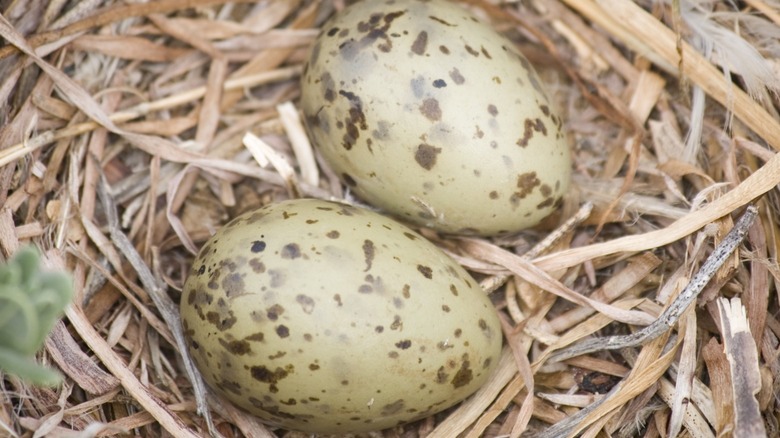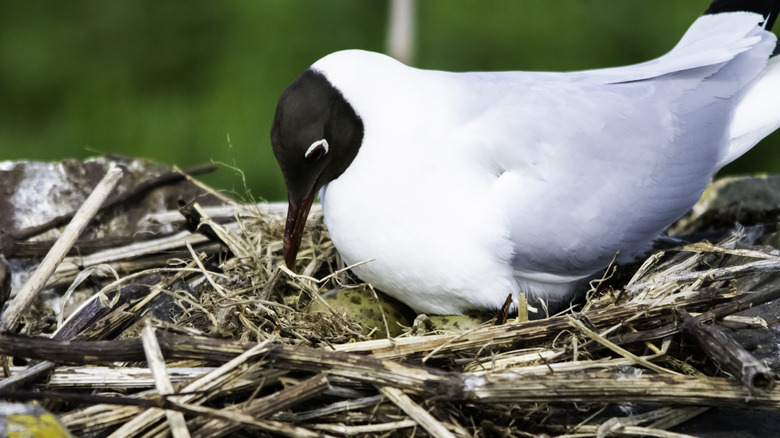The Problem With Eating Black-Headed Gull Eggs
Black-headed gull eggs can sell for over $10 each, making them some of the most expensive eggs in the world. Fans prize this type of egg for its distinctive speckled shell, creamy texture, and vividly orange-hued yolk. You can find them just a couple of weeks each year in the U.K.'s posh restaurants, gentleman's clubs, and high-end grocery retailers. They're slightly larger than a pheasant's egg and are commonly served boiled so the diner can admire the shell's pattern.
In recent years, people started weighing the real cost of these eggs. The Wildlife Trusts report there are approximately 140,000 black-headed gull "breeding pairs" in the U.K. They're considered to be at risk of extinction, according to a coalition of the U.K.'s leading bird conservation agencies and nonprofits. "The Birds of Conservation Concern" report places these gulls on the "amber list," while the most endangered birds are on the red list.
The demand for these eggs exacerbates bird conservation issues. According to the National Audubon Society, there's a lucrative market for illegally collected gull eggs since foraging is regulated and demand exceeds supply. Since egg poachers often strike after sundown, they sometimes mistakenly take eggs from different birds including the even more threatened Mediterranean Gulls.
Adding insult to injury, the population is already at risk due to Avian flu, decreased food availability, and climate change. As the Royal Society for the Protection of Birds' director of policy, Jeff Knott, told The Guardian, "collecting of black-headed gull eggs for food is unsustainable, unhelpful and should stop."
The U.K. government regulates egg collection
Due to sustainability concerns, the legal availability of the black-headed gull egg is carefully regulated. Both the egg harvester and the restaurant or store selling the eggs need a government-issued license. Harvesters are limited in the amount of eggs they can take, and retailers and restaurants may only sell them during a defined period ending June 30. There are six specific areas in the UK where harvesters are allowed to forage: Keyhaven Marshes, Lymington Marshes, Pylewell Marshes, North Solent nature reserve, Barden Moor, and Upper Teesdale nature reserve.
The birds usually lay additional eggs to replace any taken by predators or egg collectors. However, according to research journal Acta Oecologica, this happens at a metabolic cost to the birds, meaning they need to eat more in order to make and lay more fertilized eggs. However, some argue that controlled harvesting is not only sustainable but part of British culture, dating back to before the Victorian era. "Wildcook" cookbook author Garry Eveleigh grew up foraging and collected gull eggs as a child. He told Country Life that in his opinion, the birds are at greater risk due to loss of habitat than the legal and limited collection of eggs.

